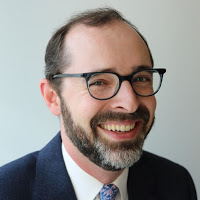Career Diversity in Ethnomusicology
Good morning everyone! I’d like to thank Dave for organizing this panel, and Dwan for chairing. I think those of us up here today have known each other in various capacities, but working somewhat externally to the discipline proper, we don’t always get the chance to see each other and interact a whole lot. So it’s a pleasure to be here.
First I’ll say a bit about ”how I got here”. Then, I’m going to share some thoughts on what “career diversity” might look like in ethnomusicology, explore ways that changes in the discipline and scholarly communication can encourage increased career diversity, and finally to share my perspective on career diversity as I saw it as a funder at the National Endowment for the Humanities (NEH).
How did I get here?
We have all come to this point in our careers from various places and by different paths. On my path, I give heartfelt credit to my mentors at the University of Michigan musicology department, for their open-mindedness and general support. While my advisors don’t do work in libraries and archives like I do, I never felt that it was something that I shouldn’t pursue. In fact many of my mentors encouraged very broad thinking about ethnomusicology as a discipline, were known for their work as historians and practice advising musicians, and often carried on active performance in specific types of music with communities. In addition, the breadth of the institution allowed me to find resources that I needed: talking with administrators about how they found their career path, working in the University Library, talking with librarians, and working across music, Slavic studies, anthropology, and information studies gave a sense of being connected (and, I hope, a connector).
My early interest that set me on the path where I am now probably came from experiences working in libraries at the U of Michigan - I initially wanted to be a music librarian. I got experience working on the reference desk, processing collections, and searching and updating databases. When I did my fieldwork in the Czech Republic to study traditional cimbalom string bands, I discovered a large archive of taped radio performances at the Czech Radio station in Brno, which drew my attention and interest to sound archives. Given the resources of a large institution like Michigan, I was able to study things like Czech language but also take courses in archival management and ultimately complete a Masters in Information Science, as well as the PhD. Although my independent spirit wanted to follow my own way, I also took advantage of many workshops and advising at career services, participated in seminars at the Center for Research on Learning and Teaching, and attended a “Preparing Future Faculty” seminar. I also followed the email list that became the organization now called Versatile PhD, where I first learned about the process to apply for federal jobs. In the time period of 2002 through about 2009, perhaps this was similar to assembling the sorts of professional development we see more of now. Along the way I also applied for probably dozens of small travel grants, research stipends, and other financial support. Somehow all of this came together in what I see as a sort of career that (in broad strokes) supports the infrastructure of the research enterprise through things like libraries (sometimes described as “epistemic infrastructure”) and funding organizations; helps to communicate experience through teaching; and one that supports contemporary scholarship and communication in digital modes. Being able to explain my ethnomusicology work from a variety of perspectives made me seem enough of a generalist that led me to NEH, and convinced them that I was comfortable with broad audiences, a range of disciplines, and various types of work. My experience as an ethnomusicologist and an archivist/librarian was also directly influential for being selected for a position at the Smithsonian Center for Folklife and Cultural Heritage and, now, at the Library of Congress.
All of this said, I don’t think that my current position is something that is by any means an endpoint or a foregone conclusion. There were many years of hard work and frequent frustration. I was struck by a recent article by Courtney Wiersema, who advises PhD students for non-faculty careers at University of Chicago. Describing the advising process, she stresses that there are not easy answers and that “non-faculty job searches work best when PhD candidates make space for feelings of frustration, uncertainty, and loss. It’s not easy to find meaningful work, nor is it easy to construct a new story about who you are and where you’re headed.” She concludes that these sorts of stories are easy to tell in hindsight but advocates for the importance of working through the process of “turning your feelings of loss and confusion into a new story about the purpose and impact of your historical training.”
Changing research cultures
Those of us who are non-faculty academics frequent experience frustration, which is caused by many factors, but a large area of tension is that as non-faculty roles, we often don’t get recognized within systemic scholarly structures. Scholarly research culture, however, is undergoing significant changes as scholarly communications become increasingly digital. I’ll point out a few observations from the “One Culture” report (2012), which was jointly produced by NEH, IMLS, NSF, and project managers working with the “Digging Into Data” program. Here are a few observations from that report, which point towards some of the places where we as a scholarly society can encourage change:
- Expand the concept of research. The leaders and intellectual conception of large projects is crucial; however, most of the large projects scanned for this report revealed additional critical categories of work, and it is useful to think about these as part of the research enterprise as well. They identified four areas of expertise: domain (or subject) expertise, analytical expertise, data expertise, and project management expertise. If you work at a university, think about who all of your research partners are, what services does the library provide? How about the IT department? Our collaborators and informants in the field are citizen scholars. For example, do librarians or project managers or press editors, have a voice in conversations about curriculum? Probably not. But I think that there are a few ways to think about encouraging these voices in the processes of scholarly communication, research, and teaching.
- Embrace interdisciplinarity. Ethnomusicologists do this all the time, and I think it may be a core aspect of our discipline’s identity even in the foundation conversations about whether we are more musical anthropologists or anthropological musicologists or something else entirely. As the One Culture writers concluded, “the intellectual flexibility that an interdisciplinary perspective cultivates is an excellent foundation” for flexible, creative, and resilient careers.
- Address gaps in training. These are rife. But I would suggest that attending workshops on digital skills and tools, whether at the Library or organizations like HASTAC or other places can be highly beneficial. Likewise, supporting experiential development such as internships with cultural organizations, arts administration, etc, and making them rewarded experiences can be useful. Having our ethnomusicology voices in these conversations is important to create more attention.
- Scholarly communication. I’m summarizing a few of the report’s observations here (nos. 6, 7, and 8). The need for recognition of varied outputs has long been recognized in music fields. Did you produce a CD? That might be part of research work. Nonetheless, it may be useful to move as much as possible with the rising tide to re-envision scholarly publications, whether in digital, multimedia, podcast, or some other form. Have you analyzed a set of youtube videos? Why not create a dataset that could be distributed on GitHub, can that be a publication? Platforms like dataverse allow for versioning, licensing, and stable urls for citation!
One of the ways that I’ve seen change over the past few years is through the growing conversation about “career diversity.” This has been a buzzword in the funder community and so I’d like to give a bit of background on what it is and where I think it’s coming from.
What is “career diversity”?
You may be wondering, “What is career diversity?” It is a term and idea that I have increasingly warmed towards, particularly as an alternative to the oft-used “alt-ac.” While I think that both are totally fine, I prefer to think of my career as the one that I’m having, not as an “alternative”!
There have, however, been quite a lot of recent developments in this area, which I briefly want to review. Some I have been closely involved with. These are not specifically in ethnomusicology, but hope that they may be illustrative and that some of the connections are apparent.
The Humanities Indicators project of the American Academy of Arts and Sciences (as of 14 Nov 2018) tracks various career outcomes for humanities majors. Their work illustrates that postsecondary teaching (presumably the college teaching, though not necessarily the tenure track?) is the largest bar for the humanities, and there is a considerable differential between humanities and other fields. Note, however, that there are significant differentials in a few other areas, including education, arts and media, and cultural heritage sectors (library and museums). This may suggest that other disciplinary areas have encouraged greater movement beyond the field than have the humanities, writ large.
Encouraging career diversity
Those for whom a system is working often don’t have a high incentive to make changes. That is where I have had a particular interest in my work as a funder. A few recent initiatives have begun to promote changes that encourage diverse career outcomes for those in “traditional” graduate programs. One of the first supported initiatives that I noted was the ACLS/Mellon Public Fellows program, launched in 2011. The intent of the program is to offer two-year, fully paid postdocs to recent PhDs “from a wide array of humanistic disciplines … at selected government agencies and other non-profit institutions.” They currently award 20 per year, and work with organizations like Public Radio International, the Smithsonian Cultural Resource Initiative, and other think tanks, NGOs, public administration, and cultural organizations. Ethnomusicologists have been awarded these fellowships.
In 2015 and 2016, I was involved in a group that developed a program at NEH focused on the “Next Generation Humanites PhD.” This program was offered through NEH’s “challenge” program, which meant that recipients had to match any awarded funds dollar for dollar and to commit local resources and fundraising to support any project. Based on data, like that of the Humanities Indicators reports, we knew that humanities PhDs pursue many different professions, in and out of academia. The goal of the grants, then, was to create space to devise new or alter extant doctoral education models to “both transform the understanding of what it means to be a humanities scholar and promote the integration of the humanities in the public sphere.” Although there was a wide variety of possible activities, which were evaluated for fit to the applicant’s needs, the supported activities included things like “multi-departmental collaboration, transformations in curricula, modifications in stipend structures, altered formats for dissertations, commitment to collection of alumni career information and outcomes, partnerships with non-university entities, as well as a pledge to encourage doctoral students to explore and prepare for multiple career trajectories.” In other words, support for new ideas about what scholarly output can and might look like, support for internships and practicums, multi-disciplinary collaboration, and the encouragement of mentoring through alumni networks. In the end, only 3 of the large grants were awarded, resulting in financial resources of about 2 million dollars spread between Duke University, University of Chicago, and University of Delaware. That program was halted under the current Presidential administration. A smaller, “planning” program that could at least motivate conversations and planning actions, has continued, and it has resulted in about $1.2 million dollars across 29 awarded projects, which have served a much wider constituency. (Note as of 2020: The quotes in this paragraph come from program documents, which are no longer available since the program was discontinued in 2018.)
| Year | Event |
|---|---|
| 2011 | ACLS/Mellon public fellows |
| 2014 | Mellon pilot grant to AHA |
| 2016 | Mellon “Career Diversity” grant to AHA ($1.5 mil) SEM Preconference @ Library of Congress: Public Sector Ethnomusicologies |
| 2016–2018 | NEH Humanities NextGen PhD Planning: 29 grants, $1,187,845 Implementation: 3 grants, $2,099,838 |
Table: recent timeline of select career diversity programs
Career diversity in ethnomusicology
Most of these programs have supported things like what the American Historical Association (AHA) has encouraged in its “career diversity” project, which was undertaken by the scholarly society as a way to encourage greater awareness of careers. The project aims to increase “the presence of rigorous and sophisticated historical thinking and knowledge in sites of decision making.” If we were to think about what this means for ethnomusicologists, there would be a wealth of things, which may be a unique constellation of alignments from a variety of fields. Things like the idea that it is often the ideas, intent, and context (culture) that is as important as the action; understanding social and aesthetic motivations as complex and situated rather than what is merely observed (or heard), etc. With a dedicated project manager, the initiative produces frequent blog posts about various issues related to professional development, information about where historians work and the sorts of skills in given jobs, interviews (video and audio) with practitioners, and professional advice on topics like preparing resumes to digital publishing, etc. AHA has also used this large grant to make subawards to individual departments to work on local initiatives.
The Society for Ethnomusicology (SEM) has also been doing great work on this front. In 2016, when our meeting was in DC, my colleagues at Library of Congress organized a day-long symposium on ethnomusicology work in the public sector. It was a wonderful showcase of the range of things that people coming out of ethnomusicology are doing. Likewise, the board and the society’s members have helped to bring more avenues for public scholarship, including the podcast, the ethnomusicology blog, the SEM student union, among other things.
In conclusion, here are a few more areas where we could advance work in this area:
- Networking. Taking advantage of interests and opportunities, when those connections create intersections being lucky enough and resourceful to take the alternate paths
- Thinking about transferable skills - project management, communication, digital projects.
- Credentialing. This is a tough area that will change slowly. I realize that it takes a lot of time and resources, but nonetheless, professional activities that are not necessarily PhD research fields deserve respect and they also require various professional terminology, practices, assumptions and their own discourse and journals. To do this kind of work essentially requires one to be in at least two fields at once, and you should do it to the best that your energy, resources, and interests will allow. I ended up with a second Master’s degree in information science.
The actors that define scholarly communications are not usually individuals, they are institutions, libraries, publishers, funders, and scholarly societies, like this one: so, it us! We hope that this panel and the following discussion will grow the discussion further, and we look forward to engaging with you all!
Colophon
This essay is a light revision of a talk that I gave at the Society for Ethnomusicology’s 63rd Annual Meeting in Albuquerque, New Mexico. My thanks are due to the panel organizer, Dave Lewis, and co-panelist Rebekah Moore, and our wonderful panel chairperson, Dwandalyn Reece of the Smithsonian National Museum of African-American History and Culture.
The slides for the talk can be accessed at https://goo.gl/kS83q9.



Comments